By Andrew Cohen
Erwin Chemerinsky didn’t ease in slowly when his year-long term as the American Association of American Law Schools president began in January. The Berkeley Law dean’s opening address pointedly urged legal education to confront society’s increasingly vexing problems head-on.
The theme for his presidency — how law schools can make a difference — reflected his belief in their ability and obligation to help propel positive change at a time when faith in America’s core institutions was buckling. Over the course of the year, his own law school did just that.
Berkeley Law reached inspiring heights for its pro bono work (95% of students participate). For its Clinical Program (spearheading new legislation and targeted projects to help marginalized people in California and around the world). For its faculty (leading impactful efforts to safeguard elections, protect refugees, make jury selection fairer, and more). For its Field Placement Program (a record 106 students spent the fall semester doing legal work for a nonprofit or government agency).
It’s an impossible task to document all the newsworthy happenings at Berkeley Law, but one we relish just the same. Here’s a look at a dozen stories from the law school homepage — out of 100 over the past year — that showcase the school’s excellence, community, and public mission.
Excellence
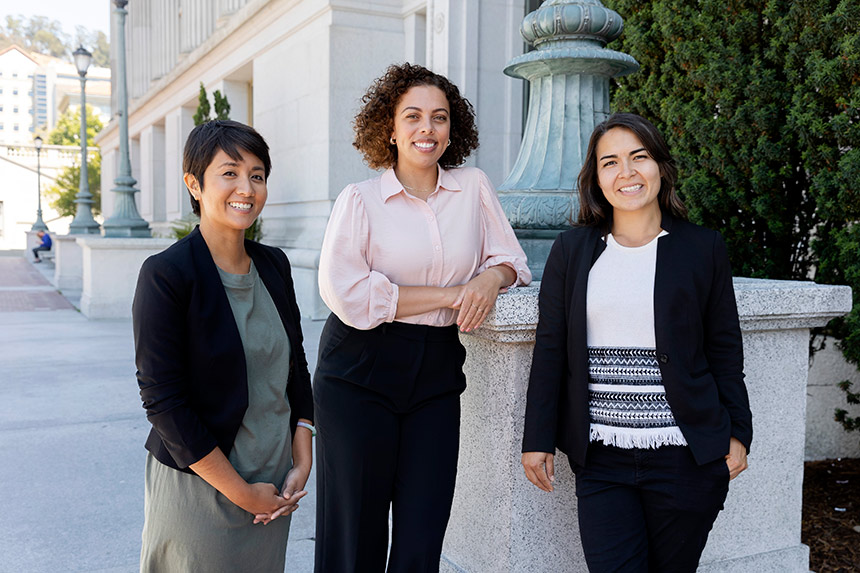
Restitution Relief: Policy Advocacy Clinic Spearheads Reform Efforts to Lift a Lifelong Burden
Already a leading force in the successful nationwide movement to eliminate juvenile legal system fees and fines, Berkeley Law’s Policy Advocacy Clinic is now targeting another regressive financial charge — restitution. Californians convicted of crimes are routinely ordered to pay restitution to compensate crime survivors for harms such as stolen or damaged property, medical expenses, or other financial loss. Most people assessed this charge can never afford to pay it, resulting in crushing debt, difficulty securing stable employment or housing, and crime survivors receiving little to no money.
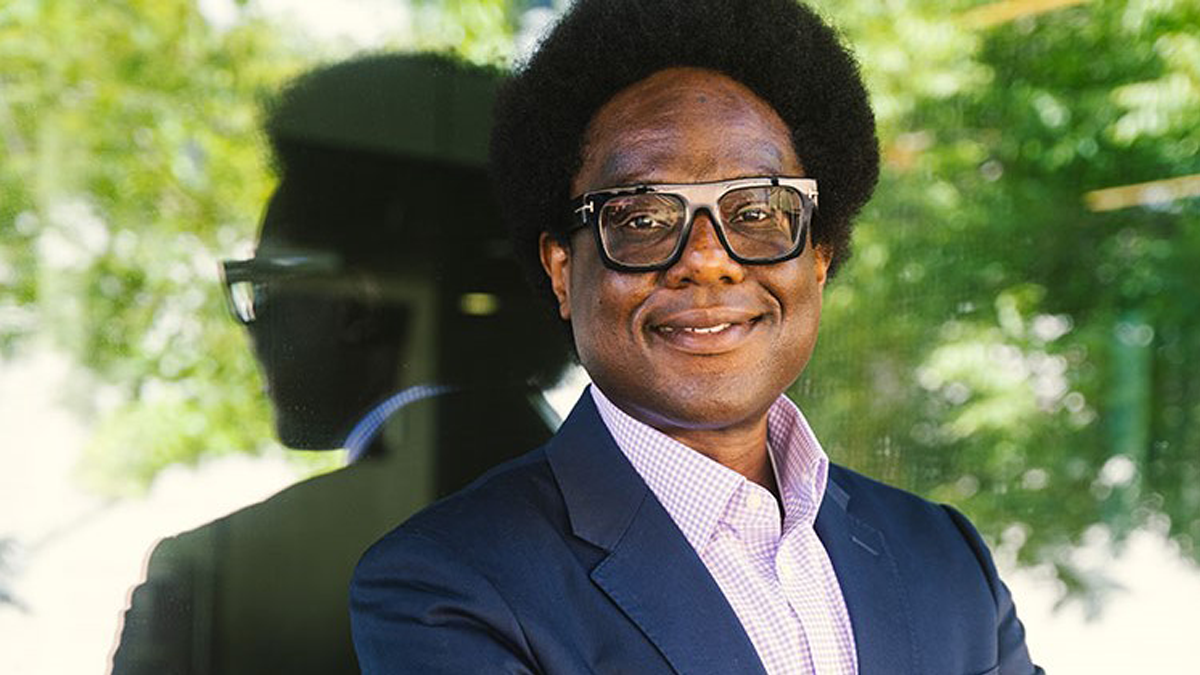
Race, Medicine, and Law Scholar Osagie K. Obasogie Wins Guggenheim Fellowship
For Osagie K. Obasogie, Berkeley’s interdisciplinary environment has been a professional accelerator. Working across race, medicine, and law, and drawing on an array of theories, methods, and intellectual traditions, has allowed him to pursue new avenues with his innovative work. Receiving a prestigious Guggenheim Fellowship, he says, is a gratifying validation of that approach. The award will help expand Obasogie’s leading research on “excited delirium,” a vague and controversial term often used by medical examiners and coroners to explain why community members die in police custody.
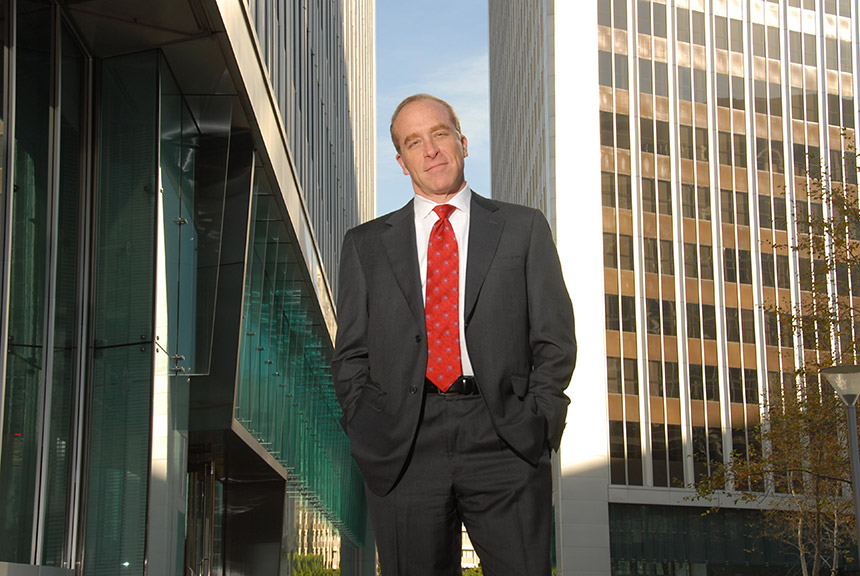
Hollywood ‘Legal Legend’ Scott Edelman ’84 Rides Humility to the Top
One of just five people named to The Hollywood Reporter’s 2022 Legal Legends list (along with fellow Berkeley Law alum Cliff Gilbert-Lurie ’79), Scott Edelman ’84 took an unconventional route to entertainment law stardom. In a world of agro personalities and cutthroat competition, his path has been paved with modesty and introspection. “While you can and should fight as hard as you can, you should treat the other side with respect, and always remember that they’re not the devil and in fact are often very similar to you,” Edelman says.
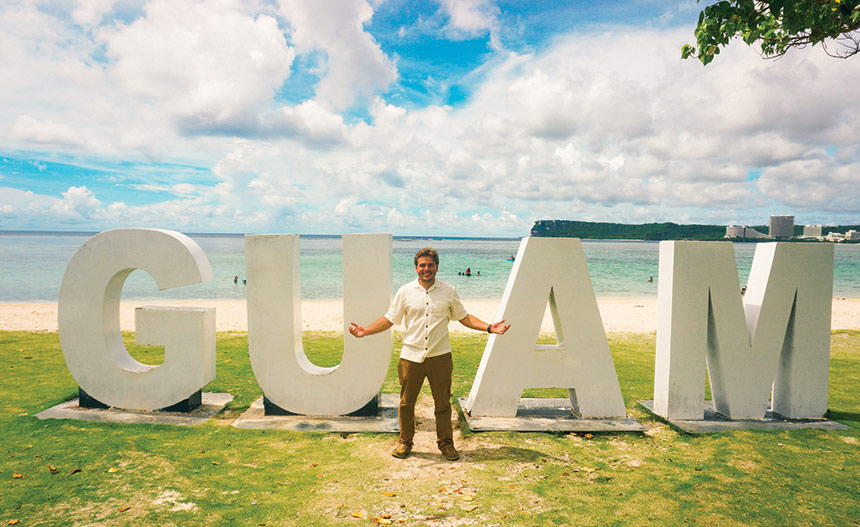
With 87 Alumni Judicial Clerks Across 30 States and Territories, Berkeley Law Extends Its Reach
The jarring lack of diversity among judicial clerks remains a persistent problem that has sparked national conferences, studies, and consternation. This year, roughly a quarter of Berkeley Law’s 87 clerks working across 30 states and territories are people of color and over half are women. “We’re proud of that diversity,” says Director of Judicial Clerkships Anna Han. “Representation in the legal profession — and especially in the judiciary and among judicial staff — is critical to eliminating bias and improving access to justice.” Devin Oliver ’22 and Felix Mendez-Burgos ’21 describe their unconventional paths to judicial chambers.
Community
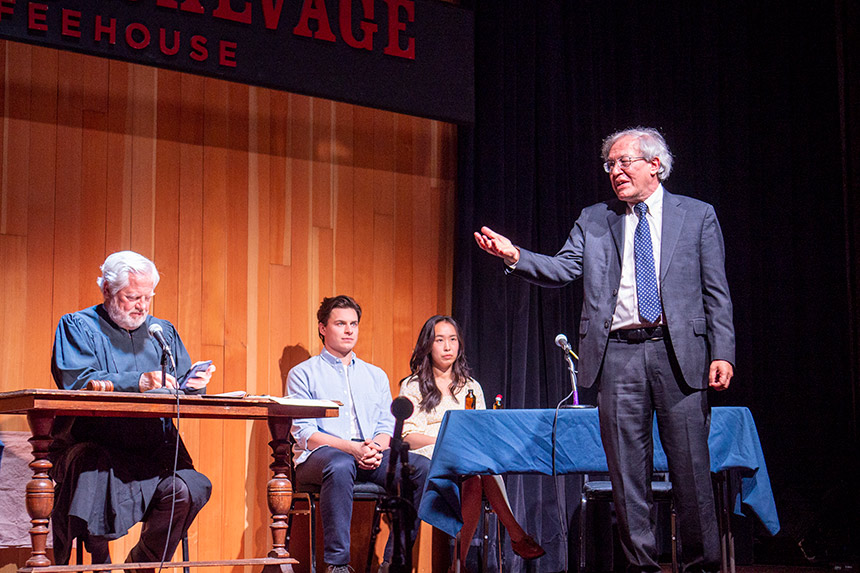
‘These Violent Delights Have Violent Ends’: Shakespeare and Law Merge Once Again
Berkeley Law revived its popular, innovative blend of Shakespeare theater and legal argument with Chemerinsky in a starring role. In March, a packed crowd in downtown Berkeley and an online YouTube livestream audience watched him take the stage with two other law luminaries and three members of UC Irvine’s New Swan Shakespeare Company for Romeo, Juliet, and the Case of Friar Laurence. After actors performed three scenes from Romeo and Juliet, the case against the friar — claims of involuntary manslaughter and child endangerment — began with Chemerinsky as prosecutor and Stanford Law Professor Bernadette Meyer as defense counsel.
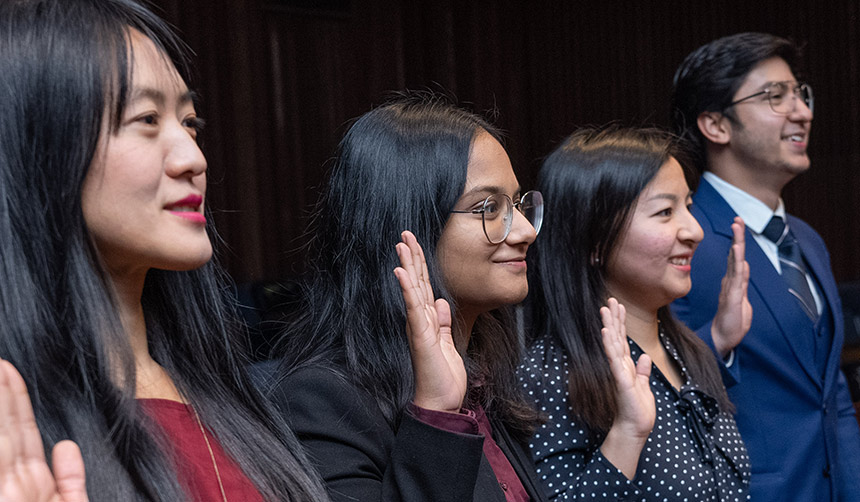
Sworn In: Recent Berkeley Law Grads Celebrate Passing the California Bar Exam
On Dec. 13, recent graduates were sworn in as new attorneys at a spirited ceremony honoring their passing the July 2022 California Bar Exam. Between opening and closing remarks by Chemerinsky, guests heard from Berkeley Law Alumni Association President Nicole Ozer ’03, California Court of Appeal First District Associate Justice Jon B. Streeter ’81, and U.S. District Court Judge for the Northern District of California Trina Thompson ’86. Our J.D. alumni pass rate was 92.2% for first-time takers — the second year in a row Berkeley Law had the highest pass rate among California’s 18 law schools.
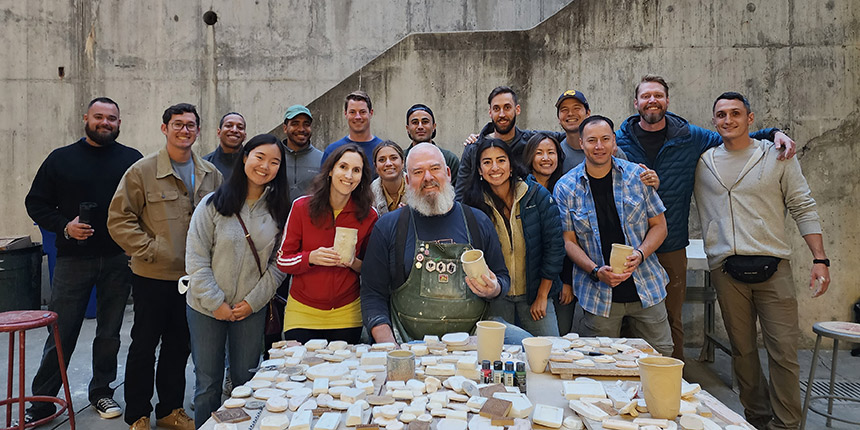
Community Through Art: Student Veterans Groups Create Special Night With Ceramicist
A chance meeting at a local bar evolved into a cathartic night for members of two Berkeley Law student organizations for active military and veterans with UC Berkeley ceramicist Ehren Tool, a former Marine who has brought fellow vets together for 20-plus years by helping them craft mugs that connect with their military experience. “Ehren has the lived experience to understand what younger veterans are going through and to provide perspective,” says 2L Eric Wright, who had two Army deployments to Afghanistan. “It’s really important in law school to have a support network and to find community.”
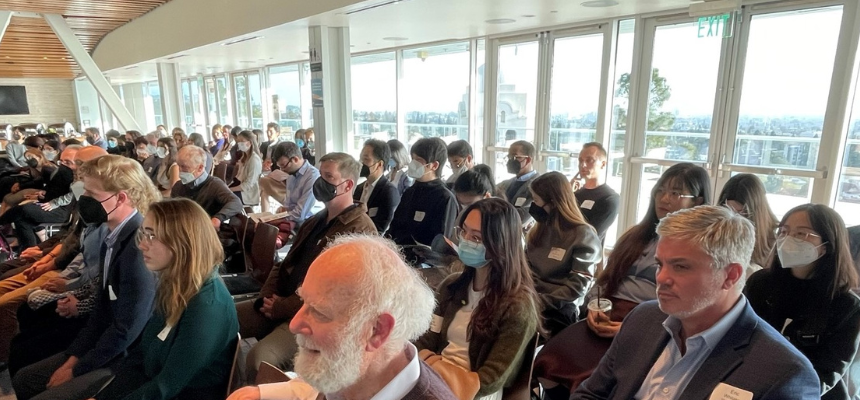
Unique Events and a New Platform Grow Berkeley Center for Law & Technology’s Thriving Community
The hub of the law school’s renowned intellectual property law program for over 25 years, our Berkeley Center for Law & Technology continues to lead a field that keeps evolving at warp speed. The center crowned a blizzard of dynamic events this year with the new Berkeley IP & Tech month in May, which offered 30 virtual sessions led by experts from Berkeley Law and Silicon Valley’s top firms — each eligible for Continuing Legal Education credit. The center has since bundled more than 100 sessions onto the new B-CLE platform so practitioners can access them, and snag their credits, anytime.
Public Mission
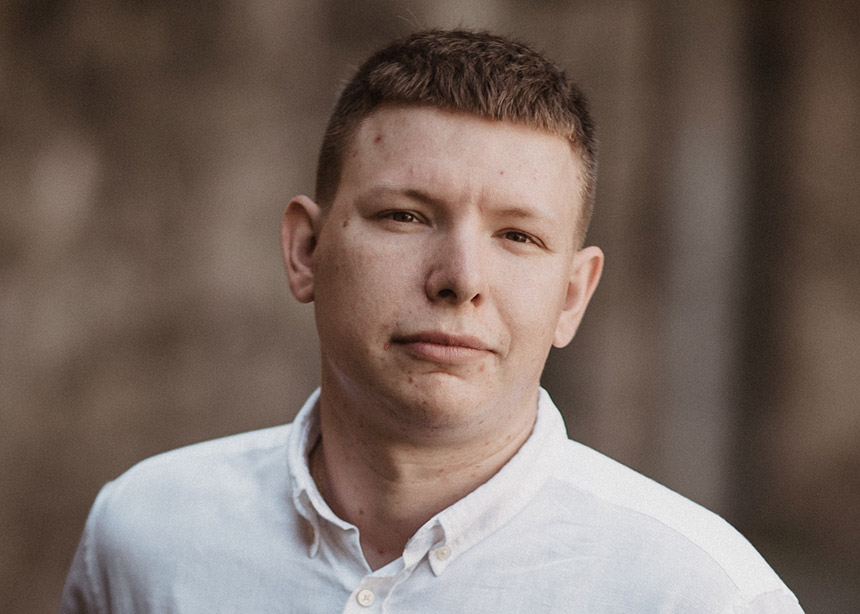
International Partnership Creates Free Tuition for 100 Ukrainian Lawyers in Berkeley Law Course
Following Russia’s invasion of Ukraine, Professor Robert Bartlett learned that some Ukrainian lawyers had asked about ways to stay productive while their country and careers were suffering. Several planning and coordination rounds later, Berkeley Law offered its Executive Education program course Corporate Finance Fundamentals for free to 100 Ukrainian lawyers. The online program, which normally costs $1,000, conveys how to apply financial information analysis and corporate valuation in business settings and legal practice. “As a public university, access to education is a key priority for us,” says Adam Sterling ’13, Berkeley Law’s assistant dean for executive education and revenue generation.
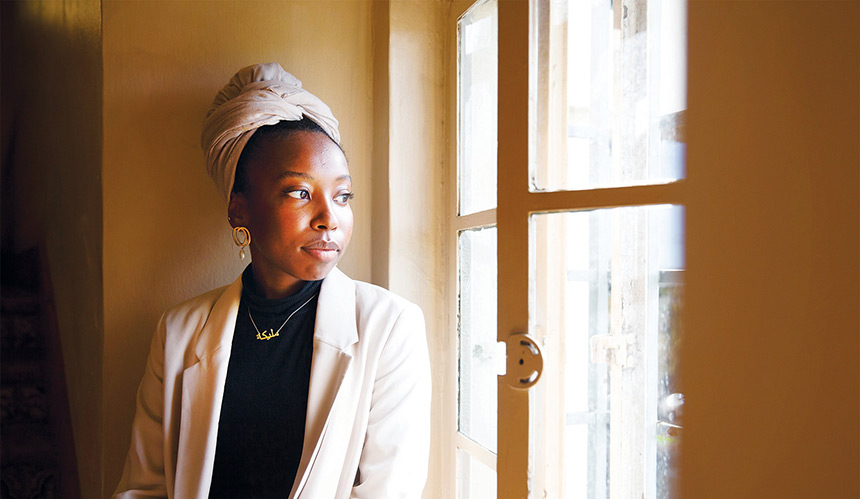
Pro bono work sits at the heart of the Berkeley Law student experience. With 95% of students taking part in such work, it’s viewed not merely as part of their law school experience, but as an essential one. That ethos permeates the Berkeley Law landscape, from faculty who dive into wide-ranging pro bono cases to alumni lawyers who help supervise student projects to senior administrators who have significantly increased staffing, resources, and funding for the school’s Pro Bono Program. Read more about some of these pro bono standouts and how they serve the school’s public mission.
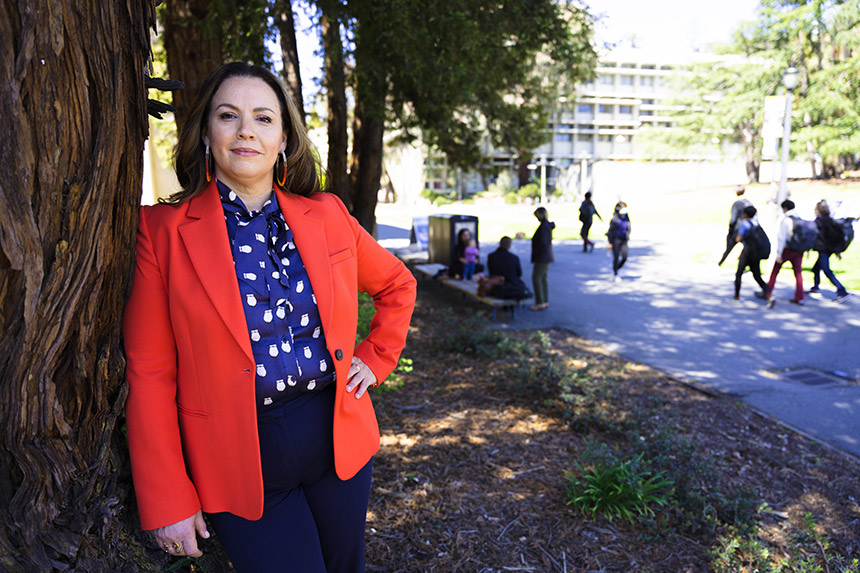
New Program Builds on UC Plan to Cover Tuition for In-State Native American Students
For years, Dean of Admissions and Financial Aid Kristin Theis-Alvarez has worked to increase Native Americans’ access to law schools. When the University of California system initiated a plan to cover tuition and student service fees for in-state students enrolled in federally recognized Native American, American Indian, and Alaska Native tribes, she was elated — but wanted Berkeley Law to do more by offsetting the Professional Degree Supplemental Tuition that makes up the bulk of law students’ costs. Now, the school has begun using existing financial aid money to cover those fees for qualifying students.
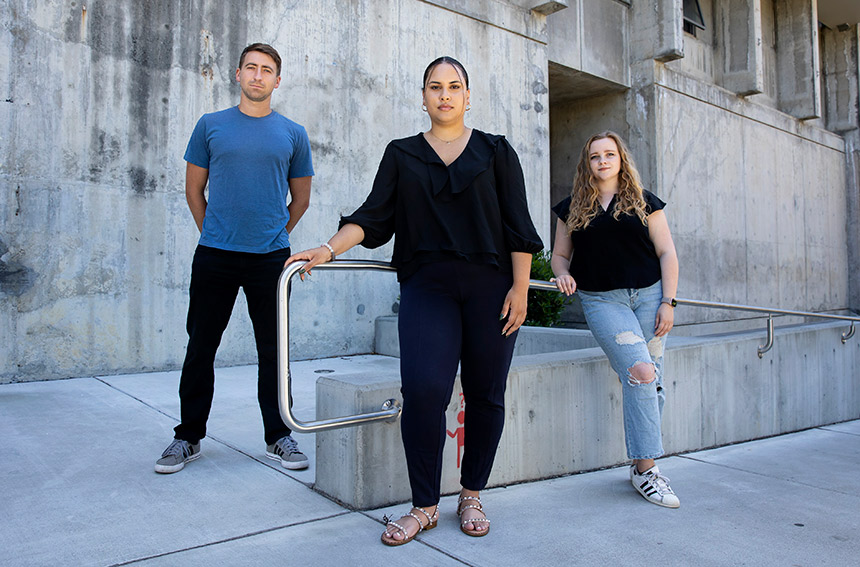
From the Supreme Court handing down decisions that threaten decades of constitutional jurisprudence, numerous states adding hurdles to voting, and rising authoritarianism around the world, the rule of law — and the role of the law — felt especially important in 2022. Berkeley Law’s faculty and students answered the call in countless ways, working to defend and advance basic rights. “Law professors, with their expertise and influence, have a special role to play in fighting for liberty and equality,” Chemerinsky says. “Berkeley Law … is well-positioned to make a real difference.”